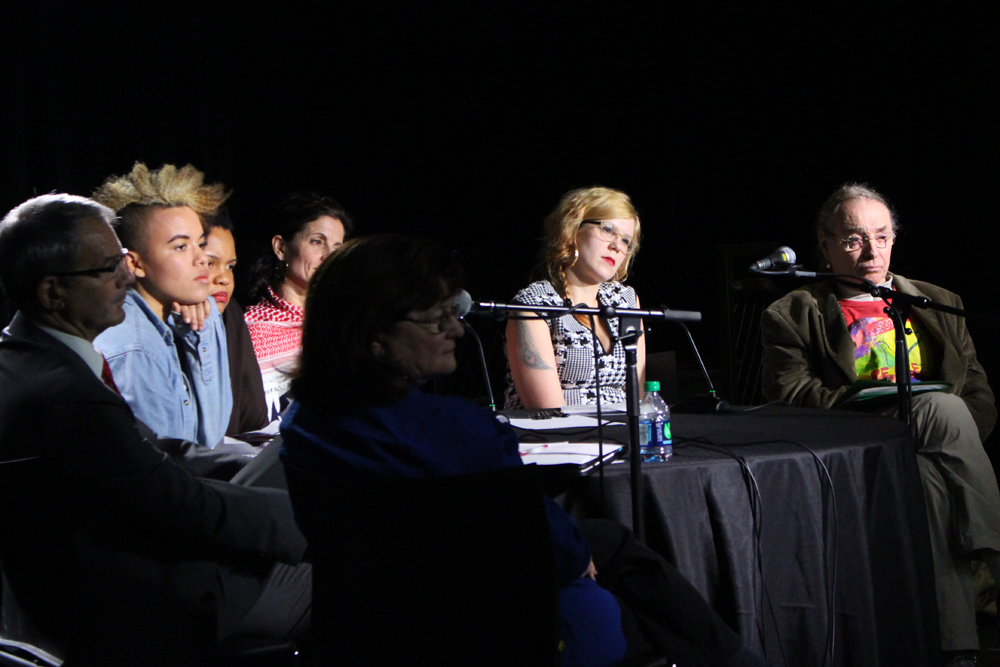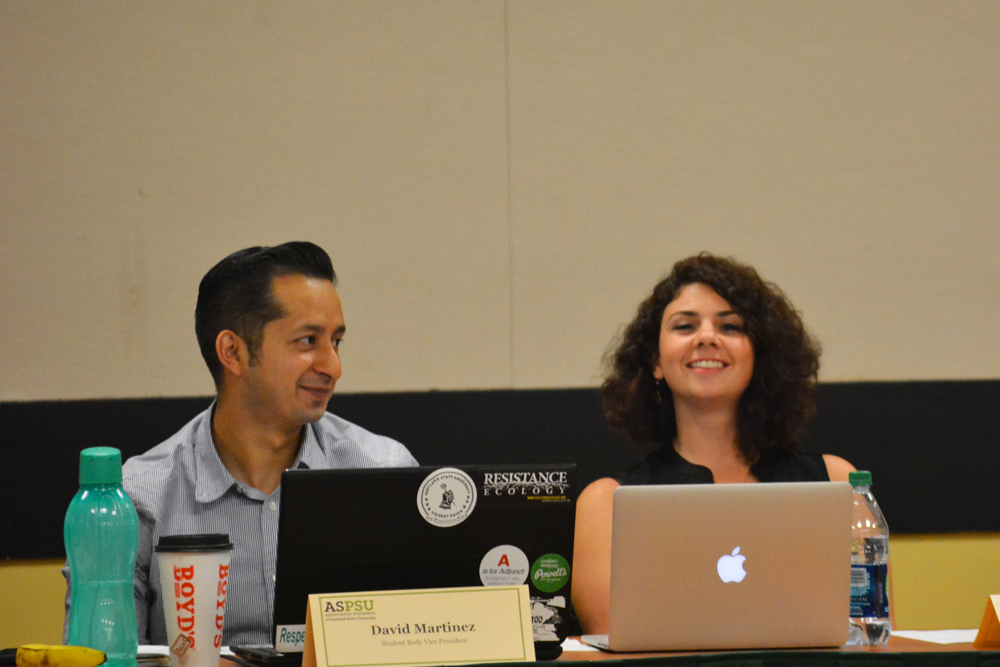A recent student-hosted campus safety forum trenched into continued debate about last year’s move to introduce a sworn, armed police force to Portland State.
Hosted by the Associated Students of PSU, last Tuesday’s Redefining Safety on Campus forum sought to address the varied lenses through which people of differing backgrounds view safety.
The forum’s roundtable format featured seven panelists described as stakeholders, including Assistant Professor in Peace and Conflict Studies Roberta Hunte, Assistant Professor of Conflict Resolution Tom Hastings, Sexual and Relationship Violence Response Program Coordinator Adrienne Graf, PSU Student Union and #DisarmPSU member Olivia Pace, Vice President for Global Diversity and Inclusion Carmen Suarez, Professor of the School of Social Work Stephanie Wahab and Campus Public Safety Office Chief Phil Zerzan.
Hunte moderated the roundtable discussion, giving each panelist two minutes to respond to various prompts. The panelists explored questions about their perceptions of safety, both on campus and more broadly, as well as ideas about how to keep PSU safe.
Pace, who has previously participated in interruptions of campus events in protest of the decision to arm CPSO officers, argued that dissenting voices were ignored throughout the arming process.
“That is not a safe campus, when those being kept safe aren’t included in those decisions,” she said.
The process that led to arming CPSO officers began with a 2008 report by the office of the Vice President for Finance and Administration, which offered several solutions to improve campus safety, including establishing a regular police force. Administrators argue that efforts have been made to include student voices throughout the process. A 2013 final report from the Presidential Task Force on Campus Safety noted that interviews were conducted with an array of departments and student communities, such as athletics, Student Activities and Leadership Programs and the Women’s Resource Center. University-led forums invited student and community input ahead of the final Board of Trustees vote in December 2014.
Student attendees disputed administrator arguments during a subsequent Q-and-A period, with several arguing that administrator efforts at student outreach were limited. ASPSU President Dana Ghazi also contested that current students were not in attendance at PSU during previous efforts and thus unable to be involved throughout the process.
“Honestly, we are talking about a conversation that has started in 2008,” she said during the forum’s closing statement. “Students graduate every four years; the same students are not involved in this conversation. I don’t know how we hold our students accountable for the conversation that was started in 2008.”
The Q-and-A period consisted entirely of opponents to the arming of campus police, with all comments directed against the university decision or Zerzan himself.
Postbaccalaureate biology student Akash Singh, who has followed the issue since starting classes last January, argued that the justice system has proven to take great lengths to protect police officers involved in shooting incidents. He also said that student awareness of these incidents has created an inability to trust armed officers.
“If ever you feel there is a systemic problem in the way you feel safe on campus, then you should be going to individuals who are tasked with your safety,” Singh said. “But when the students themselves cannot trust those very individuals, it creates an incredible imbalance and I’m not sure where students are supposed to go at that juncture.”
PSUSU member William Peterson noted that the conversation seemed like more of the same, particularly from administration representatives, whom he accused of towing an administrative line. But he also appreciated the panelists’ open engagement with topics such as toxic masculinity and the response to arming CPSO.
“It’s very refreshing not to just hear that from the students,” he said. “It was very refreshing to hear that from staff members.”
After the forum, Singh called the conversation helpful. Despite frustrations with the administration holding firm on its stance, he acknowledged the value of hearing perspectives on the discussion across departments.
“I feel it was one of the most illuminating conversations that I’ve had regarding this topic, especially when it comes to students interacting with individuals who are part of different departments and who have different roles at this school,” Singh said.
But he also pointed to the relatively small size of the forum audience as a greater issue faced by the community.
“It certainly needs to be on a much more frequent level and it needs to be much larger than this,” he said. “This is a school of several thousand students. If we are able to have this incredibly informed conversation and it happens in a room of this size, then it’s a systemic problem we need to address.”







Just give it up, students come and go and their opinions matter little in the grand scheme of things. The Police are armed, live with it or go to a different school. Majority of them have armed Police too.